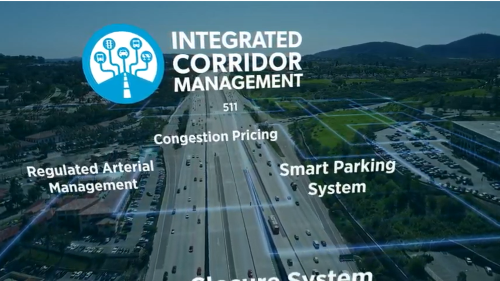The Federal Highway Administration released a video on May 7 touting the benefits of “Integrated Corridor Management,” which is a surface transportation strategy that targets major highway congestion events, such as truck overturns, chemical spills and multi-vehicle crashes.

The vision of Integrated Corridor Management or ICM is to improve the efficient movement of people and goods through institutional collaboration and aggressive, proactive integration of existing infrastructure along major transportation corridors.
Through an ICM approach, transportation professionals manage the corridor as a multimodal system and make operational decisions for the benefit of the corridor as a whole.
When it comes to roadway congestion, the FHWA noted that travelers respond in a variety of ways: finding an alternate route, selecting a different roadway (freeway versus surface street), adjusting their trip to another time of day, or remaining on their current route and enduring the significant delays.

Such disruptions range in scale, frequency, predictability, duration, and have the potential to impact a number of facilities or modes, the agency noted.
To reduce the potential of increased traffic congestion on a larger segment of the transportation network due to such decisions, the FHWA said ICM strategies focus on the use of managed lane strategies, alternate routing of traffic, and managing and controlling traffic within freeway corridors.
They help achieve significantly greater levels of utilization of existing roadway capacity, while improving travel safety and reliability, the agency added.
 Nation
Nation
The Stream by AASHTO: Electrified Roadway Testing
December 5, 2025 Nation
Nation

